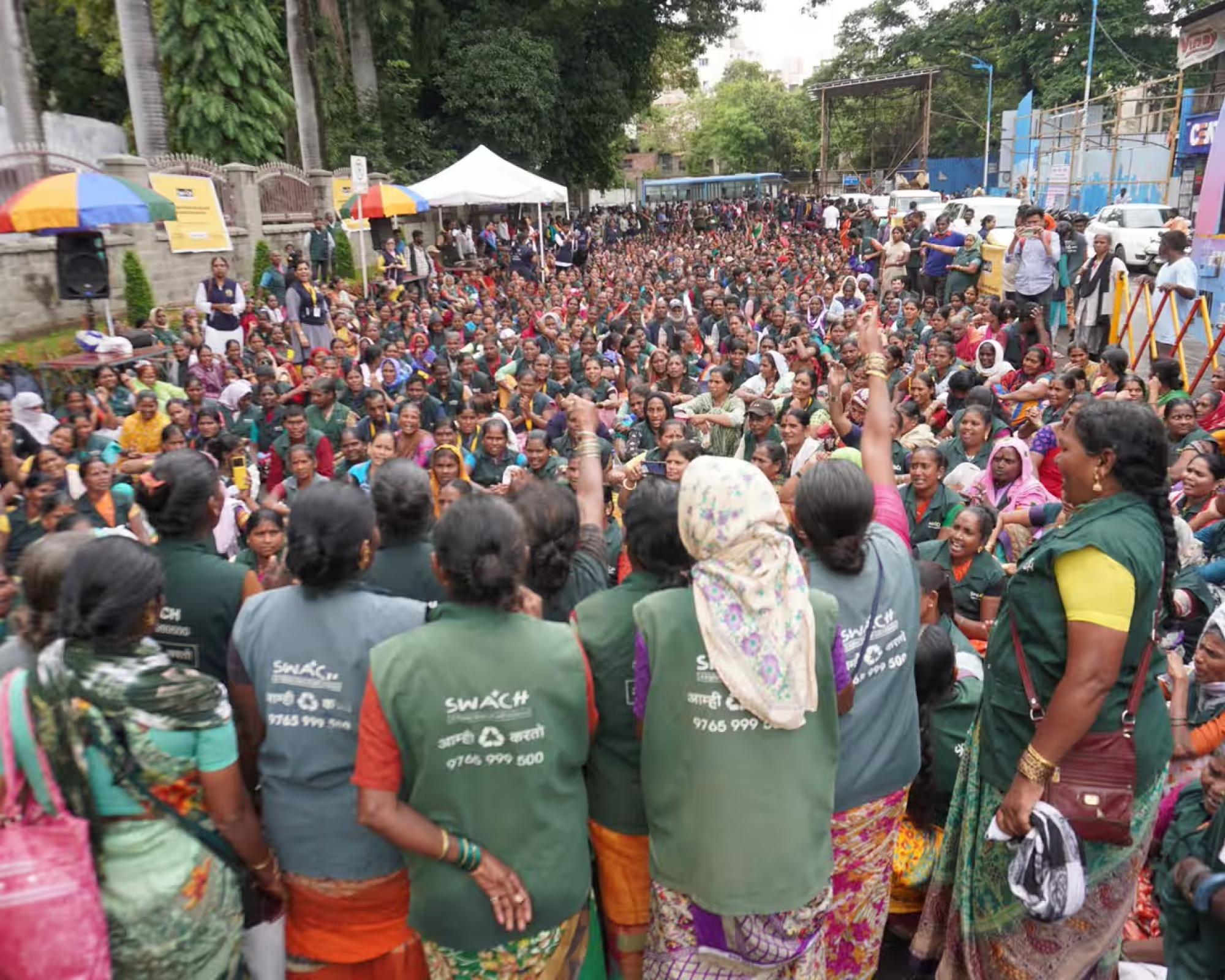Related Stories
‘Waste collection is green work’: how a pro-poor partnership created jobs and cleaned a city
Key Excerpts from Article on Website of The Guardian (One of the UK's Leading Newspapers)

Posted: June 19th, 2025
https://www.theguardian.com/environment/2025/may/22/waste-co...
Rajabai Sawant used to pick and sort waste on the streets of Pune with a sack on her back. The plastic she collected from a public waste site would be sold for some money that saved her children from begging. Today, dressed in a dark green jacket monogrammed with the acronym Swach (solid waste collection and handling) over a colourful sari, the 53-year-old is one among an organised group of waste collectors and climate educators who teach residents in urban Pune how to segregate and manage waste, based on a PPPP – a pro-poor private public partnership. Swach was set up in 2005 by a trade union of waste pickers, Kagad Kach Patra Kashtakari Panchayat (KKPKP), which was ... envisioned a scheme that enhanced waste collectors’ work instead of displacing them. These [PPPP] partnerships are contracts between the state or local authority and a group of private individuals that aim to provide a public service while simultaneously alleviating poverty. Of the waste generated by the city, Swach sorts and recycles about 227 tonnes a day (82,891 tonnes a year) that is diverted away from landfills. It saves the city £10m that would have been needed for processing, transportation and human resources. Today, Swach has more than 3,850 self-reliant waste picker members, who provide daily doorstep waste collection services to citizens of Pune who pay a small monthly fee. Under the PPPP, each member is a shareholder and earns about 16,000 rupees (£140) a month.
Note: Explore more positive stories on reimagining the economy.
Related Stories
Top Inspiring News Articles
Top Inspiring News Articles from Years Past



























































































